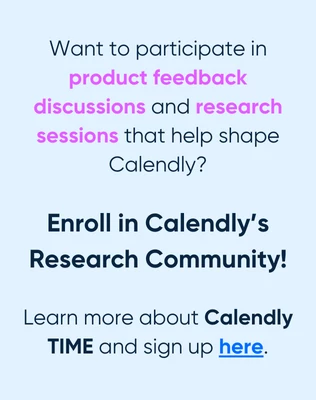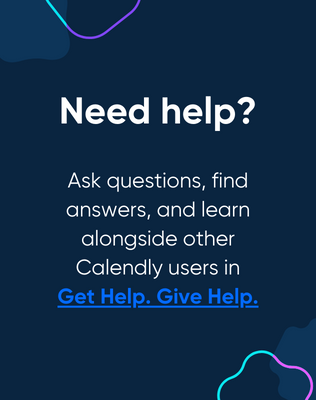I know you’re probably wondering “what’s the difference between Team events and Shared events?”. You can create the same type of events and the booking process is the same so what’s the main difference?
Well, it depends on your scheduling needs. In short, shared event types are designed for quick collaborations with anyone in your organization while team events are designed for cross-collaboration.
Shared events are ideal for ad-hoc meetings or short-term meetings. The great thing about shared events is that you don’t need an admin or the owner to create the meeting. You are able to create a shared event right from your Calendly account and add a colleague.
For example, if you and another colleague are working together on a project and need to meet with an external client every week for the duration of the project, you can create a shared collective event type for you and your colleague. You can then invite that external client to book with you both. Since the project is only for a couple of months, this event is not shown on your main scheduling page to avoid confusion for your personal events.
For team events, it’s geared more towards cross-collaboration. With team events, the admin has control of the scheduling experience. They can create the events to make sure everyone on these events are on the same page. There is also more customization with team events. The admin can add a team avatar and customize the scheduling links.
A perfect picture of this would be if you wanted to create an onboarding team on Calendly. Let’s say you have acquired a new client and they are going to begin the onboarding process. One of the events that would be on the team is a collective team event between the customer success representative and a customer support agent. This will allow you to bring a user from your customer success team and support team to complete the onboarding together. In the end, your new client will receive a seamless booking experience as the team page’s customizations will be reflected on the booking page.
Just something to think about when creating multi-user event types.
Happy scheduling!




